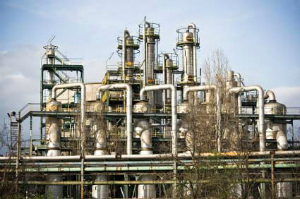
|
|
|
|
|
|
||
|
|
|
|
|
|
|
|
|
|
|
|
|
|
|
|
|
|
|
|
Industry News
Home >> About >> Industry News >> February 2012

February 14, 2012
Marcellus Shale Natural Gas Energizing US Chemical Industry

+ Marcellus Shale Natural Gas Energizing US Chemical Industry
+ Utica Shale Land in Eastern Ohio goes for Record $5,900 per Acre to Antero Resources
With
the expansion and development of natural gas deposits across the United
States, primarily in the
Marcellus Shale Formation, the US
chemical industry is experiencing its own boom.
The surplus of natural gas thrown off by rigs across the US due to
advancement in horizontal and
hydraulic fracturing techniques have
driven down prices – making it more attractive for chemical companies to
utilize the excess natural gas, reopen moth-balled plants and build new ones.
In
Charleston, West Virginia - with its proximity to the
Marcellus, local businesses are
lobbying for an enormous new chemical plant that would deal with ethane
cracking, which would bring the region and state thousands of new jobs.
Not including the thousand of construction jobs needed to build the
facility - the plant is projected to employ more than one hundred of new full time
professional engineers and technicians.
The ethane cracking plant would “crack” ethane, breaking it down to the
molecular level thus allowing the facility to turn it into ethylene - an
essential component used to produce a wide variety of chemicals used in
a wide variety of industrial and consumer products.
Unlike most natural gas which contain anywhere from 4-8% ethane, the
Marcellus natural gas contains as much
as 14 – 16% ethane, making development in the Midwest a prime location
for future chemical industry growth.
Less than a decade ago, rising natural gas prices threatened the
survival many of the process plants in Ohio, West Virginia and
Pennsylvania. The extraction of oil, wet and dry gas from the
Marcellus and
Utica shale deposits have attracted
giants like Dominion, Caiman Energy, Mark West and Shell to break ground
on projects that will pump billions of dollars of direct investment and
result in thousands of new jobs in America's heartland.
Some information courtesy NPR
Home | About | Services & Solutions | Hydraulic Fracturing | Contact | Completed Projects | Industry News
Replica Engineering Inc. 3843 W. 140 Street, Cleveland Ohio 4411 (216) 252-2204
2015 © Replica Engineering Incorporated Site Design & Management: Evolve Media